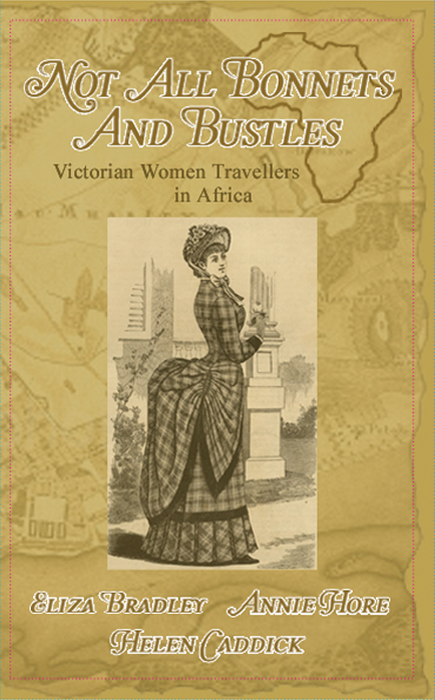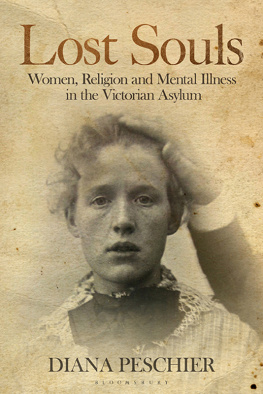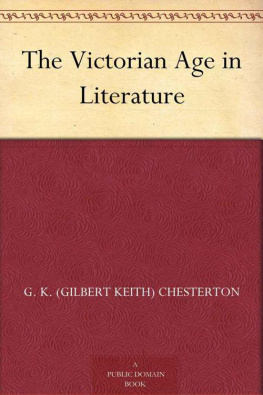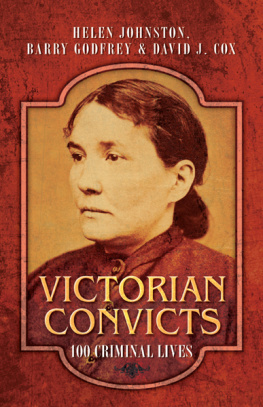Helen Caddick - Not Just Bonnets and Bustles: Victorian Women Travellers in Africa
Here you can read online Helen Caddick - Not Just Bonnets and Bustles: Victorian Women Travellers in Africa full text of the book (entire story) in english for free. Download pdf and epub, get meaning, cover and reviews about this ebook. year: 2008, publisher: Bookline & Thinker, genre: Home and family. Description of the work, (preface) as well as reviews are available. Best literature library LitArk.com created for fans of good reading and offers a wide selection of genres:
Romance novel
Science fiction
Adventure
Detective
Science
History
Home and family
Prose
Art
Politics
Computer
Non-fiction
Religion
Business
Children
Humor
Choose a favorite category and find really read worthwhile books. Enjoy immersion in the world of imagination, feel the emotions of the characters or learn something new for yourself, make an fascinating discovery.

- Book:Not Just Bonnets and Bustles: Victorian Women Travellers in Africa
- Author:
- Publisher:Bookline & Thinker
- Genre:
- Year:2008
- Rating:4 / 5
- Favourites:Add to favourites
- Your mark:
- 80
- 1
- 2
- 3
- 4
- 5
Not Just Bonnets and Bustles: Victorian Women Travellers in Africa: summary, description and annotation
We offer to read an annotation, description, summary or preface (depends on what the author of the book "Not Just Bonnets and Bustles: Victorian Women Travellers in Africa" wrote himself). If you haven't found the necessary information about the book — write in the comments, we will try to find it.
Helen Caddick: author's other books
Who wrote Not Just Bonnets and Bustles: Victorian Women Travellers in Africa? Find out the surname, the name of the author of the book and a list of all author's works by series.
Not Just Bonnets and Bustles: Victorian Women Travellers in Africa — read online for free the complete book (whole text) full work
Below is the text of the book, divided by pages. System saving the place of the last page read, allows you to conveniently read the book "Not Just Bonnets and Bustles: Victorian Women Travellers in Africa" online for free, without having to search again every time where you left off. Put a bookmark, and you can go to the page where you finished reading at any time.
Font size:
Interval:
Bookmark:

Not All Bonnets
And Bustles
Victorian Women Travellers in
Africa
An Authentic Narrative of the
Shipwreck and Sufferings of Mrs. Eliza
Bradley
Eliza Bradley
1821
To Lake Tanganyika in a Bath Chair
Annie Hore
1986
A White Woman in Central Africa
Helen Caddick
1900
The women who wrote these stories reveal a world more isolated than any we can know. A world where communication was by hand-carried letter, there were no guidebooks and few people to give advice. In addition, supplies and their transport needed military-type planning to ensure there was enough food, camping equipment and trading goods for the entire party, which included guides and porters. Disease and death closely stalked these travellers, and all the women saw fatalities. Two had direct contact with slavery and the misery that trade created.
In a few chapters, word usage has been simplified and some religious exhortations have been removed, but great care has been taken to ensure the spirit of the writing remains. For the experiences of Eliza Bradley, Annie Hore and Helen Caddick are raw and reveal a world with little cultural diversity. But it is, I think, their practical problems that engage us. How many of us would put up with rats running over our hair, cockroaches in our beds and cooks who clean dishes with spit?
The bravery of these women cannot be denied.
Yvonne Barlow, Editor
By
Eliza Bradley
I was born in Liverpool, England, of creditable parents in 1783. In the year of 1802, at the age of 19, I was married to Captain James Bradley, my current husband, who having been bred to the seas, was possessed of no other means of support, and knew of no other way to obtain a livelihood.
In May 1818, my husband was appointed to the command of the ship Sally, bound from Liverpool to Tenerife; and I, having expressed a wish to accompany him, was allowed to do so. On the morning of the 18th May, we embarked, 32 in number, comprising the ships crew and passengers of which I was the only female.
Nothing worthy of record transpired on our voyage, until nearly five weeks from the day of our departure, when we experienced a tremendous storm, which continued to rage with unabated fury for six days. To add to our distress, it was discovered that the ship, from the violent working of the sea, had sprung leaks in several places. Both pumps were kept continually going, and were found almost insufficient to free the ship from water.
The whole crew began now to turn their eyes upon my husband, who advised the immediate lightening of the shipthe preservation of their lives. Since the commencement of the furious storm, they had not been able to keep any reckoning of our position, and we had been driven many leagues off course.
Such was our perilous situation from the 19th to 24th June, but in the evening the storm began to abate. The next morning, although the sea had become much more calm, there was so thick a fog that the ships crew found it impossible to discern an object three miles ahead of them and, to add to our consternation, by the colour of the water it was discovered that we were on soundings.
The storm had rendered the ship unmanageable, and she was considered so complete a wreck, that the officers thought it their wisest plan to put her before the wind, until they could discover land, (which they imagined not far off), and then attempt gaining the shore with the small boats.
But, the day closed without any discovery of land being made, although the roar of the surf indicated that it could not be far distant. The ships crew were nearly worn down with fatigue, and as many of them as could be spared off deck sought a little necessary repose below. But, at about midnight, they were suddenly aroused from their slumbers by the violent striking of the ship against a chain of rocks with so much violence as to open her stern!
Even the little hope that the ships crew had till then preserved seemed to fail them at once. The ship resounded with their lamentable exclamations imploring the mercy of their creator! Indeed to form an adequate idea of our distress, one must have been a witness of it.
The reader should suppose that I too, in a moment like this, must have shared the terrors of the crew. But my fortitude, by the blessings of heaven, was much more than what would have been exhibited by many females in my situation. The extremity of the misfortune served to supply me with a sort of seeming firmness. My poor husband, in his endeavours to reconcile me to my fate, seemed to forget his own situation.
Never could a night be passed in more wretchedness! The storm again gathered, and while the rain fell in torrents, the waves rising every instant covered our bark and rolled their mountains over our heads. In such a situation, stretched along the outside of the hull, fastening ourselves to everything we could lay hold of, drenched through with rain, spent with constant efforts, we were obliged to exert against the fury of the waves which endeavoured to wash us off from our hold. We at length perceived the mornings dawn, only to have a clearer view of the dangers we had passed, and those we had yet to encounter.
The prospect of our situation appeared still more tremendous. We perceived that we were not far from land, but we saw it was not possible for us to reach it. The raging of the sea would have daunted the stoutest and most expert swimmer; for the waves rolled with such fury that whoever attempted to gain the shore, must have run the risk of being washed back into the main ocean or dashed to pieces against the ship or shore.
At this sight and reflection, the whole crew was seized with the extremity of despair; their groans and exclamations redoubled, and were repeated with such strength and fervency, that they were to be heard amidst the raging of the winds, the roaring of the thunder and the dashing of the waves, which, all joined together, augmented the horror of the sound.
The day was once more near closing, we reflected with terror on the last night, and trembled beforehand at that which was to come. There was indeed a small boat attached to the ship, but in no condition to weather even the short passage that appeared to be between us and the land. We passed the night with feelings more horrible, if possible, than on the former. The exhausted state we had been reduced to left us hardly power to sustain the present.
The succeeding morning our spirits were a little revived by beholding the sun arise, a sight all absolutely despaired of when we saw it setting. Our first emotion, on finding ourselves still clinging fast to the vessel, was to offer up our thanksgivings to Heaven for having preserved us alive even in such a deplorable situation, and to raise our hands in petition to Providence to complete its miracle by providing some unforeseen means of escaping to the shore. There never was a more fervent prayer. Heaven at length seemed to look down with compassion on our miseries and danger. The wind began to abate, and the various agitation of the sea to subside to that degree, that some officers conceived it possible for us to reach the shore in the ships boat.
The boat was but small, it could not contain above a third part of our number. We could not attempt to embark all at once without sinking it. Every one was sensible of the difficulty, but no one would consent to wait for a second passage. The fear of some accident happening to prevent a return, and the terror of lying another night exposed on the hull, made everyone obstinate for being taken in the first. It was, however, unanimously agreed by all, that my husband and myself should be among the number who should go first into the boat.
Font size:
Interval:
Bookmark:
Similar books «Not Just Bonnets and Bustles: Victorian Women Travellers in Africa»
Look at similar books to Not Just Bonnets and Bustles: Victorian Women Travellers in Africa. We have selected literature similar in name and meaning in the hope of providing readers with more options to find new, interesting, not yet read works.
Discussion, reviews of the book Not Just Bonnets and Bustles: Victorian Women Travellers in Africa and just readers' own opinions. Leave your comments, write what you think about the work, its meaning or the main characters. Specify what exactly you liked and what you didn't like, and why you think so.








